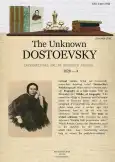Strepitu belli propelluntur artes: Dostoevsky’s Latin aphorism
- Authors: Skoropadskaya A.А.1
-
Affiliations:
- Petrozavodsk State University
- Issue: Vol 7, No 4 (2020)
- Pages: 208-221
- Section: Articles
- URL: https://journal-vniispk.ru/2409-5788/article/view/286563
- DOI: https://doi.org/10.15393/j10.art.2020.5001
- ID: 286563
Cite item
Full Text
Abstract
The article examines the Latin aphorism Strepitu belli propelluntur artes, which is found twice in Dostoevsky’s notebooks. The spelling and translation of the aphorism, its grammatical and stylistic structure, as well as the possible sources of the Latin quotation are elucidated. The expression in question is contextually unrelated to the Russian text and functions as an independent statement. The semantic connection of the aphorism with the content of the pages where it is found is revealed. The Latin expression marks the theme of war. The juxtaposition of war and art inherent in the aphorism and traditionally understood as the impossibility of their coexistence, is interpreted by the writer as a paradox: through his paradoxical hero, Dostoevsky fosters the idea that only during a war true art awakens souls and mobilizes a society’s spiritual needs. Subsequently, on his own behalf, the writer speaks about the nature of true art, which arouses people by its lofty ideals in the times of peace. However, the social reality is such that the only way for a spiritually unhealthy society to awaken and cleanse itself is a war over a noble idea. The Latin quotation is a key link in the writer’s reasoning, and it becomes an instrument of his argumentation.
Keywords
About the authors
Anna А. Skoropadskaya
Petrozavodsk State University
Author for correspondence.
Email: san19770@mail.ru
PhD in Philology, Associate Professor of the Department of Classical Literature, Russian Literature and Journalism
Russian Federation, pr. Lenina 33, Petrozavodsk, 185910References
- Biblioteka F. M. Dostoevskogo: opyt rekonstruktsii. Nauchnoe opisanie [F. M. Dostoevsky’s Library: The Experiment of Reconstruction. Scientific Description]. St. Petersburg, Nauka Publ., 2005. 338 p. (In Russ.)
- Vasil’eva S. A. Latin Quotations in F. Dostoevsky’s Literary Works. In: Vestnik Tverskogo gosudarstvennogo universiteta. Seriya «Filologiya» [Herald of Tver State University. Ser. “Philology”], 2013, issue 6, pp. 20—26. (In Russ.)
- Zhivolupova N. V. Paradox. In: Dostoevskiy: Estetika i poetika. Slovar’-spravochnik [Dostoevsky: Aesthetics and Poetics. Dictionary and Reference Book]. Chelyabinsk, Metall Publ., 1997, pp. 185—186. (In Russ.)
- Zakharov V. N. Paradox. In: Dostoevskiy: Estetika i poetika. Slovar’-spravochnik [Dostoevsky: Aesthetics and Poetics. Dictionary and Reference Book]. Chelyabinsk, Metall Publ., 1997, p. 186. (In Russ.)
- Znamenskiy P. V. Dukhovnye shkoly v Rossii do reformy 1808 goda [The Theological Schools in Russia Before the Reform of 1808], Kazan, Imperial University Printing House Publ., 1881. 807 p. (In Russ.)
- Koshechko A. N. Directions of Education of Value Structure of Daily and Existential Consciousness of F. M. Dostoevsky. In: Vestnik Tomskogo gosudarstvennogo pedagogicheskogo universiteta [Tomsk State Pedagogical University Bulletin], 2017, no. 11 (188), pp. 194—202. (In Russ.)
- Nalichnikova I. A. Kognitivno-pragmaticheskie osobennosti aforisticheskogo diskursa: dis. … kand. filol. nauk [Cognitive-Pragmatic Peculiarities of Aphoristic Discourse. PhD. philol. sci. diss.]. Ufa, 2010. 204 p. (In Russ.)
- Neizdannyy Dostoevskiy. Zapisnye knizhki i tetradi 1860–1881 godov [The Unpublished Dostoevsky. Notebooks and Workbooks of 1860–1881]. Moscow, Nauka Publ., 1971. 727 p. (Ser. “Literary Heritage”; vol. 83). (In Russ.)
- Nechaeva V. S. Opisanie rukopisey F. M. Dostoevskogo [The Description of Fedor Dostoevsky’s Manuscripts]. Мoscow, Academy of Sciences of the USSR Publ., 1957. 589 p. (In Russ.)
- Ornatskaya T. I. Clarifications and Additions to the Commentary of the Complete Works of Dostoevsky. “The Siberian Notebook”. In: Dostoevskiy. Materialy i issledovaniya [Dostoevsky. Materials and Researches]. Leningrad, Nauka Publ., 1983, vol. 5, pp. 222—233. (In Russ.)
- Protsenko Е. A. Mezh”yazykovoe perekodirovanie v tvorchestve F. M. Dostoevskogo: dis. … kand. filol. nauk [Interlanguage Recoding in the Works of F. M. Dostoevsky. PhD. philol. sci. diss.]. Voronezh, 2002. 230 p. (In Russ.)
- Ruzhitskiy I. V. Aphorisms in Dostoevsky’s Political Discourse. In: Politicheskaya lingvistika [Political Linguistics]. Ekaterinburg, 2015, no. 1 (51), pp. 213—217. (In Russ.)
- Sinitskiy D. A. Istoricheskie svedeniya o Podol’skoy dukhovnoy seminarii [Historical Information About the Podolsk Theological Seminary], Kamenets-Podolsk, Tipografiya podol’skoy gubernskoy upravy Publ., 1866. 79 p. (In Russ.)
- Tarasova N. A., Zavarkina M. V., Panyukova T. V. Graphical Peculiarities of Dostoevsky’s Manuscripts: Materials for the Information Database. In: Neizvestnyy Dostoevskiy [The Unknown Dostoevsky], 2018, no. 4, pp. 17—69. Available at: https://unknown-dostoevsky.ru/files/ redaktor_pdf/1545737853.pdf (accessed on May 5, 2020). doi: 10.15393/j10.art.2018.3788 (In Russ.)
- Tronskiy I. M. Istoriya antichnoy literatury [History of Ancient Literature]. Leningrad, Uchebno- pedagogicheskoe izdatel’stvo Publ., 1946, pp. 385—402. (In Russ.)
- Fedorov G. A. Pension of L. I. Chermak in 1834—1837 (Based on New Materials). In: Dostoevskiy. Materialy i issledovaniya [Dostoevsky. Materials and Researches]. Leningrad, Nauka Publ., 1974, vol. 1, pp. 241—254. (In Russ.)
- Shatalova S. A. Lingvisticheskie osnovy aforistiki i aforizmy v khudozhestvennykh tekstakh F. M. Dostoevskogo: na materiale romanov «Besy» i «Podrostok»: dis. … kand. filol. nauk [Linguistic Foundations of Aphoristics and Aphorisms in the Literary Texts of F. M. Dostoevsky: Based on the Novels “Demons” and “The Raw Youth”. PhD. philol. sci. diss.]. Мoscow, 2000. 256 p. (In Russ.)
Supplementary files










